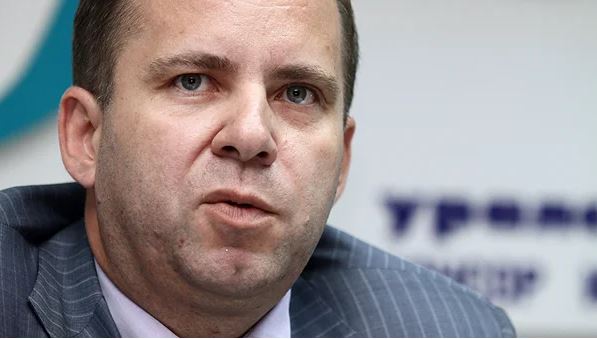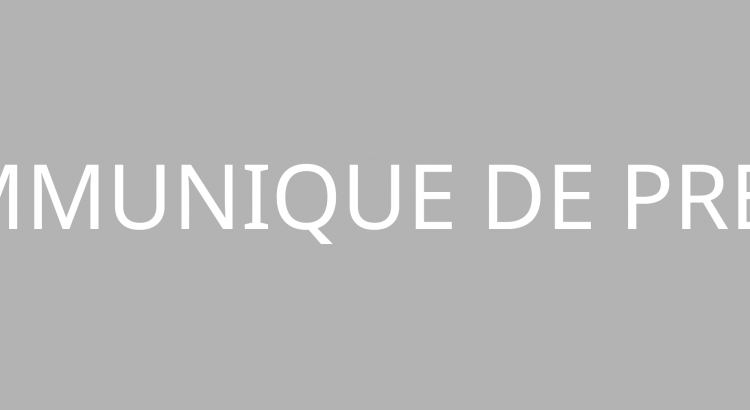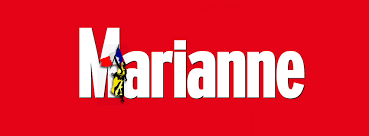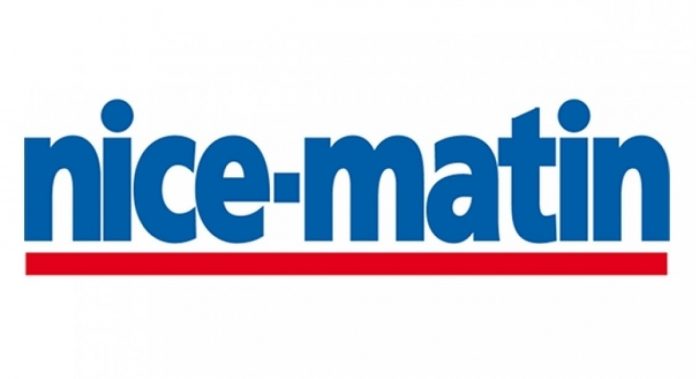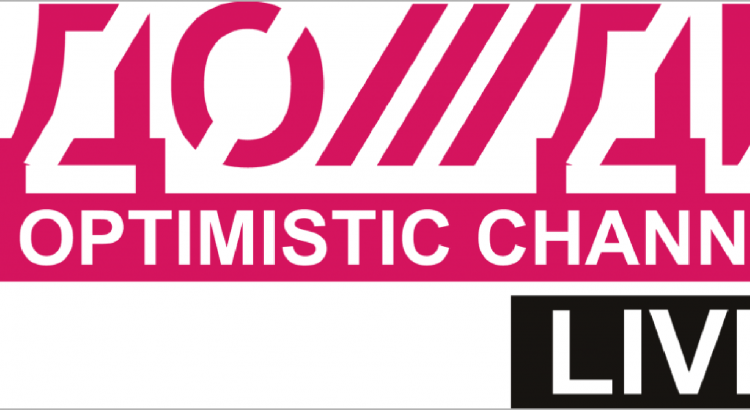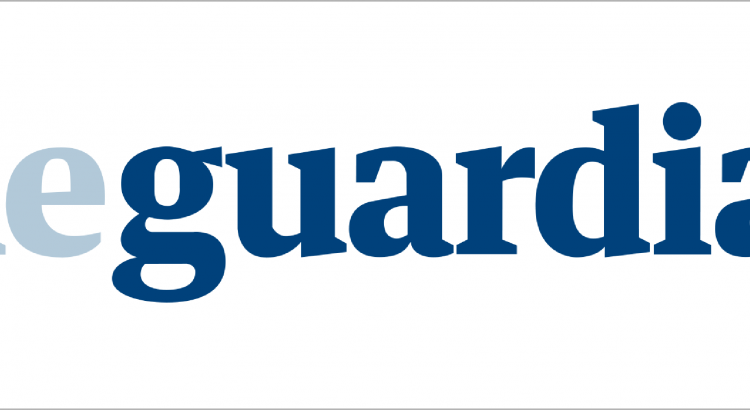Selon les informations de The Bell, l’ancien propriétaire de Mezhprombank Sergueï Pougatchev avait déjà adressé, au mois de novembre 2014, une lettre à Vladimir Poutine, dans laquelle il affirmait être victime de menaces et tentatives d’extorsion de la part de Valériy Mirochnikov, l’ex-vice-directeur de l’Agence de garantie des dépôts (ASV), et des adjoints de ce dernier.
La semaine passée Mirochnikov a démissionné de son poste dans le cadre de l’affaire de Kirill Tcherkaline, colonel du FSB. Ce dernier avait été arrêté en avril, avec en sa possession 12 milliards de roubles en cash. Après sa démission, Mirochnikov a quitté la Russie.
Lettre à Poutine. La lettre de Pougatchev adressée à Poutine (dont The Bell a pu obtenir une copie), fait partie des pièces de l’affaire actuellement examinée par la Cour d’arbitrage de La Haye. La cour a été saisie en septembre 2015 par Sergueï Pougatchev, qui a introduit une demande en arbitrage contre la Fédération de Russie pour un montant de douze millards de dollars. La première audience s’est tenue le 13 février 2017. L’ex-banquier accuse, entre autres, la Fédération de Russie de l’avoir contraint à conclure des marchés à des conditions défavorables et d’avoir spolié ses actifs.
Dans sa lettre Pougatchev identifie Valériy Mirochnikov, désormais l’ex-vice-dirigeant d’ASV, comme “l’acteur principal” de la campagne menée contre lui après le retrait de la licence bancaire de Mezhprombank et le passage de la banque sous la tutelle d’ASV.
Extrait. “Je dispose d’informations véridiques sur de nombreuses exactions dont il [Mirochnikov] est l’auteur”, écrit Pougatchev. “La plus scandaleuse parmi celles-ci est la tentative d’extorsion à mon égard, menée par un groupe organisé d’employés d’ASV et leurs complices, qui ont tenté de m’extorquer personnellement 350 millions de dollars, sous la menace de représailles physiques et de poursuites judiciaires contre moi-même et les membres de ma famille, qu’ils comptaient mener à bien grâce à leurs relations corrompues au Comité d’enquête.”
Dans sa lettre Pougatchev indique comme motif de Mirochnikov “les crimes commis antérieurement dans un but d’enrichissement personnel”.
Dans son entretien avec The Bell Pougatchev a confirmé avoir rédigé la lettre en question et l’avoir transmise à Vladimir Poutine par le biais d’un intermédiaire désigné par le président. La lettre aurait été remise à ce dernier en main propre, affirme l’ex-banquier.
Le porte-parole du président Poutine, Dmitriy Peskov, n’a pas souhaité faire de commentaires à The Bell.
“350 millions ce n’est pas un prix si élevé pour votre vie”. La nature et les auteurs des menaces adressées à Pougatchev
Les menaces adressées à Pougatchev sont décrites dans une autre requête (dont The Bell dispose également d’une copie), introduite en 2013 auprès du Tribunal de Grande Instance de Paris. Dans cette requête Sergueï Pougatchev expose les “faits d’enlèvement, menaces de mort, extorsion et escroquerie”. L’ex-propriétaire de Mezhprombank met en cause plusieurs individus, dont Mirochnikov lui-même, l’ancien employé d’ASV Aleksandr Dounaïev et un certain Mikhaïl Bachmakov, qui, selon Pougatchev, aurait également des liens avec l’Agence. La requête affirme que ces personnes auraient adressé des menaces mort et de représailles à Pougatchev. Sergueï Pougatchev a également mentionné ces menaces dans un entretien accordé hier à l’édition russe de Forbes. Les individus susmentionnées ont été désignés comme suspects dans l’affaire pénale instruite en France, a affirmé Sergueï Pougatchev dans l’entretien avec The Bell.
La requête offre aussi une description de la première entrevue entre Pougatchev, d’une part, et Bachmakov et Dounaïev, d’autre part, qui a eu lieu le 3 juin 2011 à bord d’un yacht au large des côtes françaises, après que la licence de Mezhrpombank a été retirée et que Pougatchev a fui la Russie.
C’est lors de cette entrevue que les interlocuteurs d’ASV, aux dires de Pougatchev, l’auraient menacé en ces termes: “350 millions ce n’est pas un prix si élevé à payer pour votre vie et la vie de vos proches”.
“Ce n’était pas une conversation civilisée mais d’authentiques menaces”, raconte Sergueï Pougatchev. “Ils m’ont promis de m’envoyer un doigt de mon fils, directement sur mon yacht. J’étais là quand ils ont appelé Mirochnikov au téléphone; il le tutoyaient et l’appelaient par son prénom, ils étaient à l’évidence très liés.” Il signale par ailleurs que Bachmakov et Dounaïev lui ont plusieurs fois indiqué qu’ils avaient des relations au FSB.
La requête de Sergueï Pougatcehv cite les propos de ses interlocuteurs sur le yacht: “Vos enfants habitent à l’étranger, à Monaco, à Londres et à Paris, et vous vous imaginez sans doute que vous êtes hors d’atteinte”, aurait dit l’un d’eux.
La requête indique que Pougatchev a été menacé de mort sur son yacht s’il refusait de payer 350 millions de dollars à Mirochnikov et à Roman Trotsenko (qui occupait à l’époque le poste de président des chantiers navals d’Etat Obiédinennaïa sudostroitelnaïa kompania; cette société était en train de racheter à la Banque centrale les chantiers ayant appartenu à Mezhprombank – note de la rédaction). A la date de la présente publication Trotsenko n’a pas pu être joint par téléphone ou SMS par le correspondant de The Bell.
Dans l’entretien avec The Bell Sergueï Pougatchev donne son interprétation de la proposition qui lui avait été faite. Il était convenu avec la Banque centrale et le gouvernement de la cession de ses actifs navals. Plusieurs scenarios étaient envisagés: on lui proposait, par exemple, d’acquérir une banque de taille moyenne, à laquelle la Banque centrale aurait octroyé un prêt d’un montant correspondant à la valeur des actions détenues; la banque aurait fait défaut sur le prêt, et l’affaire était réglée. Mais en fin de compte le plan a changé: il a été décidé d’octroyer un prêt à Mezhprombank, dont Pougatchev devait se porter caution, avec un nantissement de ses actifs navals en garantie. L’estimation de la valeur des actifs était régulièrement revue; le montant retenu en fin de compte était de 3,5 milliards de dollars.
Presqu’aussitôt après la conclusion de l’affaire Mezhprombank a perdu sa licence et, à l’issue de plusieurs actions en justice, les actifs nantis ont été mis en recouvrement. Les 350 millions de dollars devaient être, selon Pougatchev, une rémunération versée à ASV et à Mirochnikov pour qu’ils contestent la transaction. Pougatchev a refusé de payer, pour la raison qu’ils “devaient contester la transaction de toute manière, c’est leur travail”. Selon lui, si la transaction avait pu être contestée, une partie des actions serait restée acquise à la Banque centrale au titre de la dette de Mezhprombank, mais le reste aurait été reversé à la masse de faillite, et il en aurait “recouvré au moins une partie en tant que garant”. “Leur proposition c’était comme s’ils m’avaient dit: tu as pour cent mille dollars de mobilier dans ton appartement; tu nous donnes dix pour cent, et on ne va pas incendier ton appartement”, explique l’ancien banquier. “Ils ne me proposaient pas un marché, ils ne garantissaient rien, il voulaient simplement extorquer de l’argent.”
Selon Pougatchev, il aurait appris l’identité de Mirochnikov un an seulement avant l’épisode sur le yacht; ils ne s’étaient jamais croisés auparavant. Après le retrait de la licence bancaire de Mezhprombank Pougatchev a commencé à recevoir des coups de fil d’ASV lui proposant de rencontrer Mirochnikov, raconte le banquier à The Bell.
Pougatchev aurait laissé toutes ces propositions de “coopération” sans réponse.
Bachmakov et Dounaïev ont été mis en examen en 2012 dans une affaire à retentissement impliquant la vente d’immeubles historiques dans le centre de Moscou. Le montant total des fonds détournés était estimé à 10 milliards de roubles. Bachmakov occupait à ce moment-là un poste à l’Agence de garantie des dépôts, et Dounaïev était directeur de l’entreprise de gestion Proïekt; d’après l’enquête ils se seraient approprié 120 immeubles et bâtiments, dont 28 étaient classés monuments historiques. Presque tous les prévenus ont d’abord été placés en détention; certains, dont Dounaïev, étaient recherchés. Toutefois deux ans plus tard, en 2014, le tribunal a retourné l’affaire à la Procurature et les prévenus ont été libérés. Malgré cela Aleksandr Dounaïev, contre lequel un avis de recherche international avait été lancé, a été arrêté en Israël.
“Encore un émissaire de Mirochnikov”: une conversation à Paris
Une autre personne figure également dans les pièces fournies au Tribunal de Paris et à la Haute Cour de Londres: un certain Gore Khétchoïan, homme d’affaires, que Pougatchev désigne comme un “émissaire de Mirochnikov”. Selon Pougatchev c’est l’ancien vice-maire de Moscou, Vladimir Réssine, député de la Douma à l’époque des faits, qui lui aurait conseillé par téléphone de rencontrer Khétchoïan. C’est précisément Khétchoïan qui a organisé l’entrevue qui eut lieu sur le yacht: en mai 2011 il est venu en France et a promis à Pougatchev d’organiser une rencontre avec Mirochnikov. Mais le jour indiqué c’est Dounaïev, Bachmakov et Khétchoïan lui-même qui se sont présentés.
En janvier 2012 Pougatchev et Khétchoïan se sont revus, cette fois-ci à l’hôtel George V à Paris à quelques centaines de mètres de l’Arc de Triomphe. Khétchoïan est revenu à la question des 350 millions au nom d’ASV. L’enregistrement de cette conversation (dont The Bell dispose également) fait aussi partie des pièces a conviction dans l’affaire diligentée contre Mirochnikov en France. En voici un extrait:
Sergueï Pougatchev (SP): Ecoute, j’ai une question pour commencer. […] Ce Micha, qui est-ce?
Gore Khétchoïan (GK): Bachmakov, […] d’ailleurs c’est son sobriquet “Bachmak”.
SP: Et qui est-il? Il est employé là-bas [à ASV]?
GK: Oui, officiellement. […] Le deuxième qui était là, c’est Sacha Dounaïev. Dounaïev, c’est une sorte de structure qui leur sert à évacuer les actifs. […] Ils y ont une société, bien établie […] pour ce que j’en ai compris, ils passent en revue les banques, puis, parfois, ils les escroquent.
SP: Oui, je comprends. Un petit business, pour ainsi dire.
GK: Donc on a les protagonistes, d’accord? Ça c’est Marina [Zinoviéva, adjointe du vice-directeur d’ASV à la date des faits] et Valéra [Valériy Mirochnikov].
SP: Et ces gars-là [Dounaïev et Bachmakov], c’est Valéra qui les contrôle, ou bien non?
GK: Oui, eux c’est Valéra.
“Les personnes indéterminées pourraient être déterminées rapidement”. Apparition du colonel du FSB Tcherkaline
Actuellement Khétchoïan, qui a été déclaré en faillite il y a peu, dirige l’équipe de basketball “Dynamo” (traditionnellement associé au FSB); le conseil de surveillance de “Dynamo” compte parmi ses membres Nikolaï Patrouchev (directeur actuel du FSB – note du traducteur). Mais les liens de Mirochnikov avec les services ne se limitent pas à cela, selon l’avis de Sergueï Pougatchev. Assez rapidement après l’entrevue sur le yacht, en 2012, les représentants de Pougatchev à Moscou ont été contactés par des membres de la section “K” du FSB. Aux dires de Pougatchev il y avait parmi eux Kirill Tcherkaline et Dmitry Frolov (les deux ont été placés en détention en avril de cette année dans le cadre d’une affaire d’escroquerie à grande échelle et de corruption). Quant à Mirochnikov, immédiatement après l’arrestation de Tcherkaline il a quitté la Russie.
Extrait: “A l’époque une enquête pénale avait été ouverte pour détournement des fonds de Mezhprombank contre un groupe de personnes indéterminées. On m’a clairement fait comprendre que ces personnes indéterminées pour être déterminées très rapidement et que je pourrais en faire partie”, raconte Pougatchev.
On aurait fait voir au représentant de Pougatchev, selon ses propres dires, “un projet de plainte pénale, où il ne restait plus qu’à inscrire la date et apposer une signature”. Pour que cela ne se produise pas, les gens du FSB auraient réclamé 20 millions.
Pougatchev déclare avoir refusé de payer et, en conséquence, il a été effectivement mis en examen dans l’affaire de faillite de Mezhprombank. En outre, dans ses conversations avec les représentants de Pougatchev Tcherkaline aurait mentionné Mirochnikov, en faisant référence à “Valéra et moi”; mais il aurait également sous-entendu que, tout en étant liés, ils pouvaient, en cas de besoin, agir indépendamment l’un de l’autre.
Dans son entretien avec The Bell Pougatchev a ajouté que de telles propositions de la part de Tcherkaline ont continué à lui parvenir jusqu’à récemment.
“Les dépositions de Pougatchev ne contiennent pas un gramme de vérité”. Témoignages de Mirochnikov devant la justice
Mirochnikov a témoigné devant la cour de Londres (dépositions dont dispose The Bell). Il y a affirmé que les “dépositions de Pougatchev ne contiennent pas un gramme de vérité”. Toutefois, de son propre aveu, Mirochnikov aurait bien rencontré Khétchoïan au sujet d’un “éventuel rachat et utilisation des actifs versés à la masse de faillite de la banque gérée par ASV”. Mais ces entrevues étaient sans aucun rapport avec Pougatchev, a-t-il affirmé. Mirochnikov a également confirmé connaître personnellement Bachmakov et Dounaïev. En revanche ASV n’aurait jamais envoyé Bachmakov en mission à l’étranger (où a eu lieu l’entrevue sur le yacht); quant à Dounaïev, Mirochnikov n’a pas été en contact avec lui depuis “plus de deux ans”. Ainsi, en octobre 2014 Mirochnikov a déclaré au tribunal qu’il ignorait tout de leurs négociations avec Pougatchev.
Après la démission et le départ à l’étranger de Mirochnikov, ce dernier est resté injoignable par téléphone. Selon les données publiées par Kommersant, Mirochnikov serait mis en examen dans l’affaire du colonel du FSB Kirill Tcherkaline, ce dernier ayant été arrêté au mois d’avril en possession de la somme de 12 milliards de roubles en espèces. Il est mis en examen pour escroquerie à grande échelle.
La faillite de Mezhprombank et les accusations portées contre Pougatchev
En 2010 Mezhprombank s’est vu retirer sa licence bancaire, et Pougatchev a fui la Russie.
D’après l’enquête, les prêts octroyés à Mezhprombank par la Banque centrale pour un montant de 32 milliards de dollars auraient été détournés à travers un montage de sociétés off-shore (Pougatchev, lui, affirme avoir uniquement transféré ses propres fonds depuis son compte correspondant à la banque VTB et conteste également le montant en cause).
A la suite d’une requête introduite par ASV, le tribunal de commerce de la ville de Moscou a condamné Pougatchev et les ex-gérants de la banque à la responsabilité subsidiaire pour le passif de Mezhprombank pour un montant de 76 milliards de roubles.
Le comité d’enquête a accusé Pougatchev de détournement de fonds à grande échelle et d’abus de pouvoir. Sergeï Pougatchev est recherché par la justice et condamné à une peine de prison par contumace.
A la suite d’une requête introduite par ASV devant la Haute Cour de Londres, la justice anglaise a ordonné le gel des avoirs internationaux de Pougatchev pour un montant de 2 milliards de dollars; certains de ces avoirs ont déjà été vendus. Ainsi, par exemple, en 2018 le tribunal a ordonné la saisie de l’hôtel particulier de Sergueï Pougatchev à Londres, estimé à près de 9 millions de livres sterling. ASV affirme que le produit a été versé dans la masse de faillite.
Le tribunal a également assigné Pougatchev à résidence en Angleterre et Pays de Galles, mais Pougatchev a pu quitter le territoire britannique pour la France. Il explique sa fuite par le danger de mort auquel il était exposé en Angleterre. La Haute Cour a également condamné Pougatchev à deux ans d’emprisonnement pour outrage au tribunal.
Quelle suite?
Les pièces de l’affaire “française” contre Mirochnikov et les autres représentants d’ASV sont actuellement examinées par le juge d’instruction (l’équivalent français de l’enquêteur en Russie), rapporte Pougatchev. Il dit qu’en septembre 2019 la commission d’enquête doit décider de renvoyer ou non l’affaire devant le tribunal; le cas échéant, Mirochnikov risque d’être requalifié en suspect.
A la fin de la lettre adressée à Poutine, Pougatchev mentionne que les liens personnels de longue date qui l’unissent au président russe sont “l’unique recours pour garantir une enquête équitable en Russie”. En réalité la lettre n’a rien changé à l’affaire, avoue Pougatchev. Elle est restée sans réponse.
La prochaine audience à La Haye dans l’affaire d’arbitrage est prévue pour le mois de novembre 2019.
Anastasia Stogney, avec Valéria Pozytchaniouk
